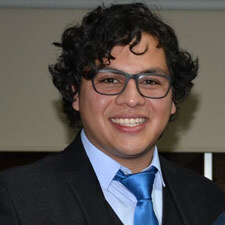Definition of Sociocultural Theory
Sociocultural Theory / / August 17, 2023

PhD in Psychology
The Sociocultural Theory is an approach from the field of human development that postulates that social interaction and the influence of culture have an impact on the cognitive process of people.
On many occasions, knowing the historical context in which advances in scientific research take place becomes essential, for For example, the obedience studies conducted by Stanley Milgram, which arose as an attempt to explain the reasons why Nazi soldiers followed orders which led to the murder and torture of Jews, Roma, homosexuals and enemies in the death camps. concentration. Along these lines, Vygotsky's Sociocultural Theory is another example in which the political context affected the development of science.
Historical context of the development of the theory
It was the beginning of 1917, February to be more exact, Tsarist Russia under the command of Nicolas II was going through an economic crisis so severe that it led to the uprising in arms of peasants, workers, soldiers and that it was led by members of the party communist; this was followed by a series of armed movements that concluded with the October Revolution in which Vladimir Lenin rose as the leader of a "new" Russia that would set aside Czarism and give way to a Republic. Later, in 1922, a new geopolitical system would rise, which would be known as the Union of Soviet Socialist Republics, USSR or simply Soviet Union.
The leaders of the new USSR, particularly Joseph Stalin, concluded that Soviet science should follow the postulates of authors like Friedrich Engels and Karl Marx and that everything else would be categorized as undesirable because it came from the approach "capitalist". In this sense, psychology was one of the disciplines most "affected" by this paradigm, due to this, the consolidation of Soviet psychology was complex. but little by little he made his way with theorists of the stature of Iván Pávlov, father of classical conditioning or Gueorgui Chelpanov, author of empirical parallelism. However, possibly one of the most notable Soviet psychologists was Lev Semionovitch Vygotsky.
Vygotsky was a psychologist originally from Belarus who studied different disciplines such as Medicine, Law, Philosophy, History and, of course, Psychology. Thanks to his academic training, Vygotsky managed to identify some limitations that psychology suffered Soviet as the reductionism of the Pavlovian theory that had favored a vision clearly physiological. Taking these limitations into account, Vygotsky proposed that human behavior is based on interconnected systems that constantly evolve to reach their maximum potential.
Vygotsky's theory describes how cognitive development and learning occur through social and cultural interaction. That is, unlike other proposals, such as Piaget's genetic epistemology, in Sociocultural Theory, learning is not seen as an individual process but as a collective process that depends to a large extent on the elements that make up the social and cultural environment, In this way, peers, caregiver figures, authorities, and non-objective elements, such as language, roles, and norms influence this. process; it is from here that it acquires the name of Sociocultural Theory.
Zone of proximal development and mediation
In Sociocultural Theory there are two key concepts: The zone of proximal development and mediation. To understand them, I would like to start by asking whoever reads this note to carry out a reflective exercise. Think of your childhood and try to remember as much as you can, now think of all the knowledge you have today; how did you learn them? Did someone help you or did you learn them yourself?
Without fear of being wrong, I can say that most of us attended academic institutions during our childhood, in these the and the teachers were in charge of giving us the information included in the educational plans and ensuring that it was learned by us; however, there were times when we were able to learn new things by ourselves. Well, this is what the concept of the zone of proximal development refers to. This “zone” refers to a (non-physical) space between what an infant can do/learn independently and what she can do/learn with the help of someone else. For Vygotsky, learning occurs at the moment when an infant is faced with an activity that exceeds the limit of her capacities, for which she must resort to ask for help from an "expert" in the activity, this can be an adult like his parents, a teacher or even another child with more competence in the activity to carry out.
Consequently, mediation refers precisely to the help that is provided to the infant who is requesting help. The objective of said mediation is to allow the infant to understand the activity carried out through the delivery of instructions, explanations, demonstrations or suggestions and in this way, she can acquire the necessary skills to carry out the activity on her own himself (a). This process not only influences the acquired skills, but also favors the infant's cognitive development. This process is sometimes also called scaffolding.
Vygotsky's postulates remain valid to this day in such a way that in many schools it is proposed that learning should start from this paradigm. However, despite this, some people consider Sociocultural Theory an unfinished proposition, due to Vygotsky's premature death.


